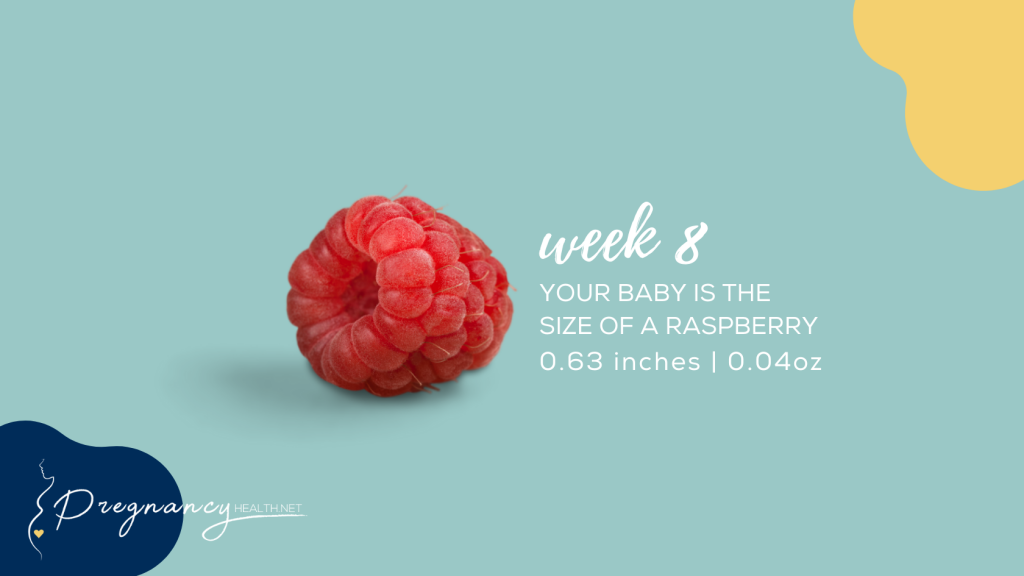If morning sickness has hit you like a ton of bricks this month, know that this is very common. Focusing on the positives, like knowing that your little one is developing a heartbeat this month, can help keep your spirits high. Hopefully, at this point you have booked a prenatal appointment with your health care provider and are taking a prenatal vitamin daily. You may have already shared the good news with your family and friends. If you haven’t yet, there is nothing wrong with that. Sharing pregnancy news early in the process or later is completely a personal preference call.
In this article, we are going to break down your 2nd month of pregnancy.
What to expect from an ultrasound
You may have an ultrasound at this point, or you may have not even seen your provider yet! This totally depends on your own health, history, and journey.
If you are having an ultrasound, it will likely be read by using a transvaginal probe. A transvaginal ultrasound allows the provider to determine the following:
- Heartbeat
- Confirmation of implantation
- Number of babies (omg twins?!?!?)
- Whether the yolk sac is present (provides nourishment to baby)
- Location of implantation. If implantation did not occur in the uterus and instead the embryo is somewhere else (like in a fallopian tube), the provider can determine whether you are experiencing an ectopic pregnancy
Which symptoms will I feel at 2 months pregnant?
You are still very early in your pregnancy, so if you are not experiencing any symptoms that is no cause for concern. Some women feel absolutely no symptoms while others experience every ailment under the sun. Experiencing symptoms is not an indication of a healthy pregnancy, so don’t let the lack of morning sickness stress you out.
Some common symptoms you may experience include:
- Fatigue
- Nausea (either in the morning or all day long)
- Frequent urination regardless of how much you drink
- Mood swings
- Tender breasts
- Runny nose
- Bleeding gums
- constipation
- Cramping and spotting (note: while this does occur in some pregnancies, if you are experiencing cramping and/or spotting, call your health care provider to make sure everything is ok).
What does a 2 months pregnant belly feel like?
Some women experience feelings inside their stomachs in the early stages of pregnancy that replicate the sensation of their muscles being pulled and stretched. Sometimes referred to as ‘abdominal twinges’, these tingles are nothing to worry about.
TMS Therapy During Pregnancy: A Safe Alternative for Treating Depression
Pregnancy is a transformative journey filled with excitement, joy, and anticipation. However, for many…
February 12, 2025Your Biggest Pregnancy Ultrasound Fears (and How They Stack Up Against Reality)
I remember my first pregnancy ultrasound like it happened yesterday. There I was, sitting…
November 24, 2020Does COVID-19 Encourage Pregnant Families to Birth at Home?
For many pregnant families, COVID-19 adds an element of fear to birthing in a…
July 12, 2020How big will my belly be at this stage of my pregnancy?
No need to rush out to buy maternity pants just yet. Your belly will look very similar to how it looked four weeks ago. You won’t start showing until later on in your pregnancy. You may experience some bloating, especially if you are suffering from constipation. Taking regular walks, drinking plenty of room-temperature water, and eating fiber-rich foods like prunes and dates can help give you some bloat relief.
How big is my baby at 2 months?

Your baby is close to the size of a raspberry-how precious! The average embryo at week eight is about .63 inches and weighs about .04 ounces.
Shopping List
This post contains affiliate link(s). An affiliate link means we may earn an advertising/referral fee if you make a purchase through the link. This is at no extra cost to you and helps us bring you quality content. See our disclosure about affiliate links here.
BUY ON AMAZON | Milkmakers Organic Prenatal Tea for Morning Sickness & Nausea Relief, With Ginger & Red Raspberry Leaf, 12 Count
If you are experiencing nausea, you should invest in some crackers and ginger ale to help give yourself some relief. Some women swear that sucking on lemon candies help relieve nausea symptoms as well or you can try Milkmakers Organic Prenatal Tea for Morning Sickness.
BUY ON AMAZON | Mommy’s Bliss – Prenatal Regularity Support – 60 Gummies
If you are having trouble going number two, know that this is a very common side-effect. Try eating a few prunes or dates every morning to get things moving. You may also want to consider a probiotic supplement or Mommy’s Bliss Prenatal Regularity Support – just check with your health care provider first!
BUY ON AMAZON | Organics Prenatal Gummy Vitamins – Berry – Organic, Non-GMO, Vegan, Kosher Complete Multi – Methyl B12, D3 & Folate – Gluten, Soy & Dairy Free
If you are having a hard time tolerating your prenatal vitamins, try a gummy option like
Homework for this month
If you have not seen your health care provider yet, make a list of questions and concerns to address during your appointment. Pregnancy brain is no joke, and you may forget some important questions during your visit.
If you have plans to go back to work after baby is here, you may have to start looking for daycares and getting your name on a list. Yes, it is very early to start thinking about child care plans, but in some areas of the country, daycares fill up quickly!
Start listening to your body. If you need a nap, take a nap! If you need a snack, eat a snack! Don’t be a hero and honor what your body is telling you it needs.
Your second month has hopefully been an exciting one and you are gearing up for the last 4 weeks of your first trimester. If you are feeling well, take this time to relax, enjoy eating nutrient-rich foods like low-mercury seafood and vegetables, and participate in some light exercise if it is ok with your health care provider. Self-care is key, especially during early pregnancy.
This article is not intended to be a substitute for professional medical advice, diagnosis, or treatment. Always seek the advice of your physician or other qualified health provider with any questions you may have regarding a medical condition. Never disregard professional medical advice or delay in seeking it because of something you have read on this website.






